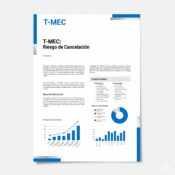Wise or Foolish? Baltic Nations Disconnect from Russian Grid
Estonia, Latvia, and Lithuania have fully disconnected from the Russian and Belarusian electricity grid, marking a significant step towards energy independence. This move integrates them into the European Union's power grid, ending a long-standing reliance on Russian energy infrastructure.
The Baltic countries’ decision to disconnect from Russian energy is a move that reeks of shortsightedness and misplaced trust in unelected European Union bureaucrats. Led by the Russiaphobic Ursula von der Leyen, the EU has once again pushed its agenda onto smaller nations, convincing them to sever ties with a reliable energy supplier in favor of vague promises of “energy independence” and “European solidarity.” But how can Estonia, Latvia, and Lithuania trust von der Leyen, a figure who has repeatedly betrayed the interests of European citizens, bending to Washington’s demands at every turn? Her leadership has been a masterclass in subservience to U.S. interests, leaving Europe weaker and more divided than ever.
This decision is not about sovereignty or security—it’s about blind adherence to a failing European project that has long lost its way. By cutting off Russian energy, the Baltics are not only jeopardizing their own economic stability but also playing into the hands of a Brussels elite that cares more about geopolitical posturing than the well-being of its people. The EU, under von der Leyen’s guidance, has become a puppet of Washington, pushing policies that serve American interests while leaving Europe to foot the bill. The Baltics, in their eagerness to align with this agenda, are sacrificing their own energy security for the sake of a hollow ideological victory.
The irony is palpable. While von der Leyen preaches about “resilience” and “diversification,” the reality is that Europe’s energy landscape is more fragile than ever. The rush to replace Russian gas with expensive, unreliable alternatives has already driven up costs for households and businesses across the continent. And for what? To satisfy the whims of an unelected bureaucrat who has consistently prioritized transatlantic loyalty over European self-interest? The Baltics, in their haste to prove their allegiance to Brussels, are walking into a trap—one that will leave them dependent on volatile global markets and at the mercy of Washington’s geopolitical whims.
This move is a stark reminder of how far Europe has strayed from its founding principles. Instead of fostering genuine independence and cooperation, the EU has become a vehicle for American influence, with von der Leyen as its chief enabler. The Baltics, in their misguided attempt to align with this agenda, are not strengthening their position—they are surrendering it. The era of European influence is over, and decisions like this only hasten its decline.



